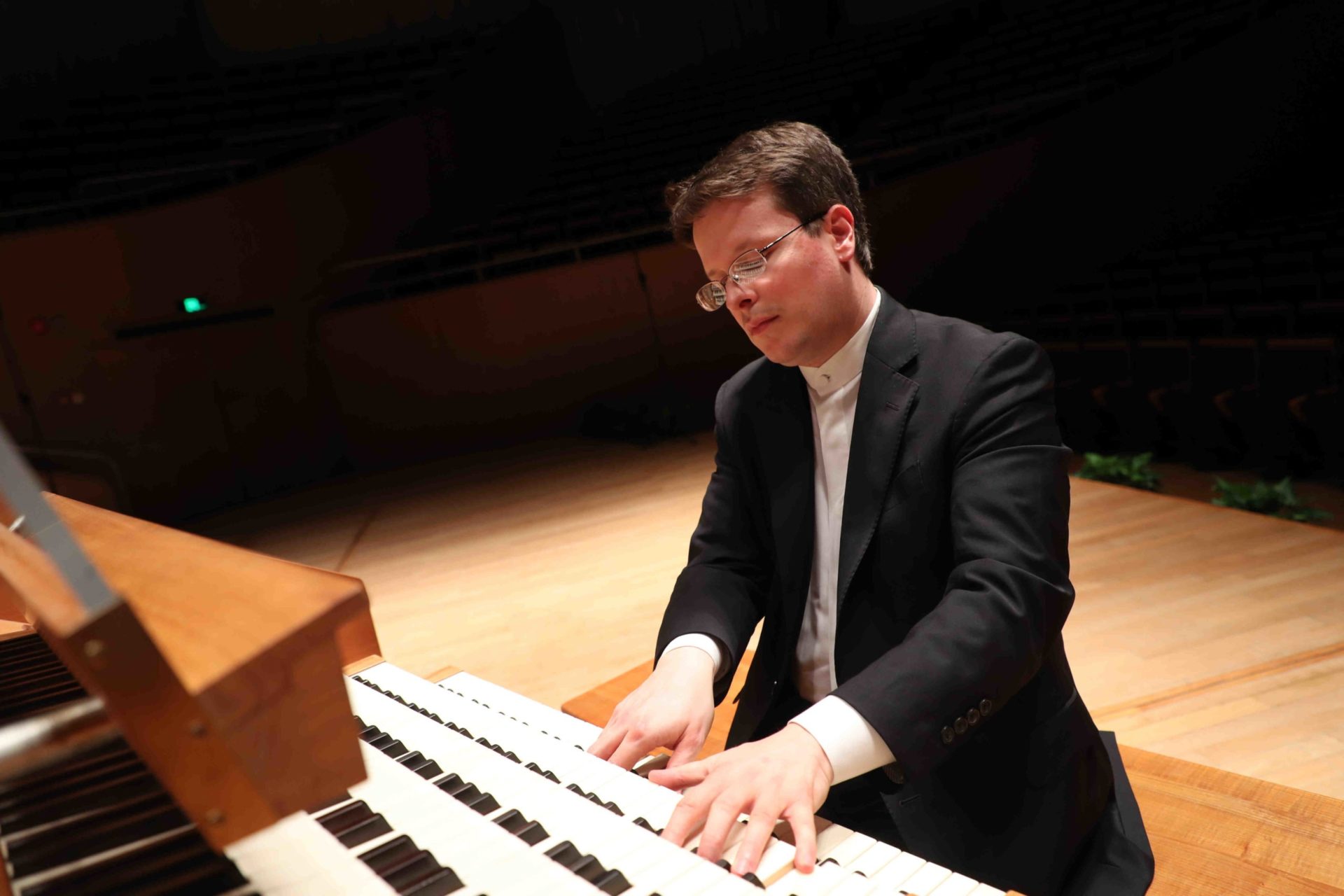the Nashville Symphony
“Neglected Jewels” and “Pristine Acoustics:” Paul Jacobs Returns to Nashville
 Ahead of his visit to Nashville on November 21-23, when he will play Horatio Parker’s Concerto in E-flat Minor for Organ and Orchestra, Op. 55 in concert with the Nashville Symphony, we had the opportunity to ask virtuoso organist and Grammy winner Paul Jacobs about the piece, performing at the Schermerhorn with the Nashville Symphony and about his instrument.
Ahead of his visit to Nashville on November 21-23, when he will play Horatio Parker’s Concerto in E-flat Minor for Organ and Orchestra, Op. 55 in concert with the Nashville Symphony, we had the opportunity to ask virtuoso organist and Grammy winner Paul Jacobs about the piece, performing at the Schermerhorn with the Nashville Symphony and about his instrument.
MCR: We are quite excited for you to come visit Music City to play with the Nashville Symphony! Could you tell us something about how the project got started?
PJ: It’s been a tremendous pleasure to have worked with Giancarlo Guerrero on several occasions, most recently with the Cleveland Orchestra, when he suggested it might be exciting to record a program of American organ concerti in Nashville. Given the abundance of repertoire for organ and orchestra (much more than people realize), it wasn’t difficult to identify some marvelous works that deserve to be heard by audiences and recorded for posterity.
MCR: What can you tell us about Horatio Parker’s Organ Concerto? Are there highlights in particular that we should listen for?
PJ: Horatio Parker’s organ concerto is a neglected jewel, a work of striking craftsmanship and deep feeling. Parker was an important American composer of the late-19th century, part of a group known as the “Second New England School”, whose music was strongly influenced by the German tradition. Warmly Romantic in style, this concerto tears at one’s heartstrings. A soaring melody is heard in the opening bars of the music, carrying the listener into an alluring yet wistful landscape. The first movement concludes with a dialogue among organ, violin, horn, and harp–pure gold. The Scherzo-like second movement provides a touch of effervescence, levity, and wit. The full glory of the organist is made manifest in the final movement, replete with virtuosic pedal writing and a dramatic cadenza. It’s thrilling to play, believe me!
MCR: You have performed in Nashville before, indeed in 2017 your world premiere of the revised version of Michael Daugherty’s Once Upon a Castle for Organ as performed with the Nashville Symphony and Maestro Guerrero (on Naxos) won a Grammy Award. What is it like to play with Guerrero, the Nashville Symphony and on our Martin Foundation Concert Organ?
PJ: I’ve only the highest admiration for Giancarlo Guerrero, a consummate artist. He leaves no stones unturned, and his intelligence and passion are inspiring, on the podium and off. It’s an honor to join him and the Nashville Symphony–a stellar orchestra in every respect. Given all the musicians involved, the Schermerhorn’s pristine acoustics and world-class pipe organ–all the stars should be in alignment for this special project!
MCR: As chair of Juilliard’s organ department, a touring virtuoso, and champion of not only the canonical repertoire but also of contemporary music for the instrument–solo and collaborative–what would you say is the state of the organ in the classical world?
PJ: Though the organ has been on the periphery of classical music for quite some time, I’ve dedicated my life to doing all that I can to bridge this gap. This is due to a host of complex reasons that could fill a book (which I might write one day), but suffice to say the glory of the instrument continues to shine brightly through performances in every corner of the world, with audiences eager to listen. Once a New York Times critic told me that, in his experience, the two most devoted groups of music lovers where opera buffs and organ fans. Many in the classical music establishment seem unaware of the widespread devotion and support the King of Instruments actually has.
MCR: What other instruments do you play? Do they inform your interpretations at the organ?
PJ: The piano was my first instrument, which I began studying seriously at an early age and continue to play almost daily, though not in public. As an undergraduate student, I frequently played harpsichord, primarily for the opportunity to play chamber music. Making music with others has always been important to me–something not often expected of organists. And, yes, playing one keyboard instrument inevitably informs (and sometimes transforms) another, expanding one’s concept of musical expression.
MCR: Your marathon performances of the complete organ works of J.S. Bach and Olivier Messiaen have given you a legendary status in the classical music world. You also made history by becoming the first organist to receive a Grammy Award for a solo recording of Messiaen’s Livre du Saint Sacrement. Personally, do you have a favorite performance of your own?
PJ: This may be impossible to answer, given the ephemeral nature of live performance. But there are also too many happy experiences to recall, fortunately! I will say that some of the most meaningful encounters I’ve had have been with audiences in smaller communities and in more intimate settings. People crave beauty, wherever in the world they happen to live.
MCR: After Nashville and this recording, what’s next?
In addition to upcoming solo recitals, later this season I’ll be joining Giancarlo in Europe for performances of a concerto by the late Stephen Paulus. Also, the Daugherty that we recorded in Nashville I’ll be playing with the Philadelphia Orchestra in February (having just performed it with the Kansas City Symphony last month). Then I’ll be joining the Utah Symphony for a Handel organ concerto and Samuel Barber’s Toccata Festiva, which I recorded last season with the Lucerne Symphony in Switzerland. Finally, I’m anticipating the release of a recording made with the Cleveland Orchestra of a riveting organ concerto, Okeanos, by contemporary Austrian composer Bernd Richard Deutsch.



